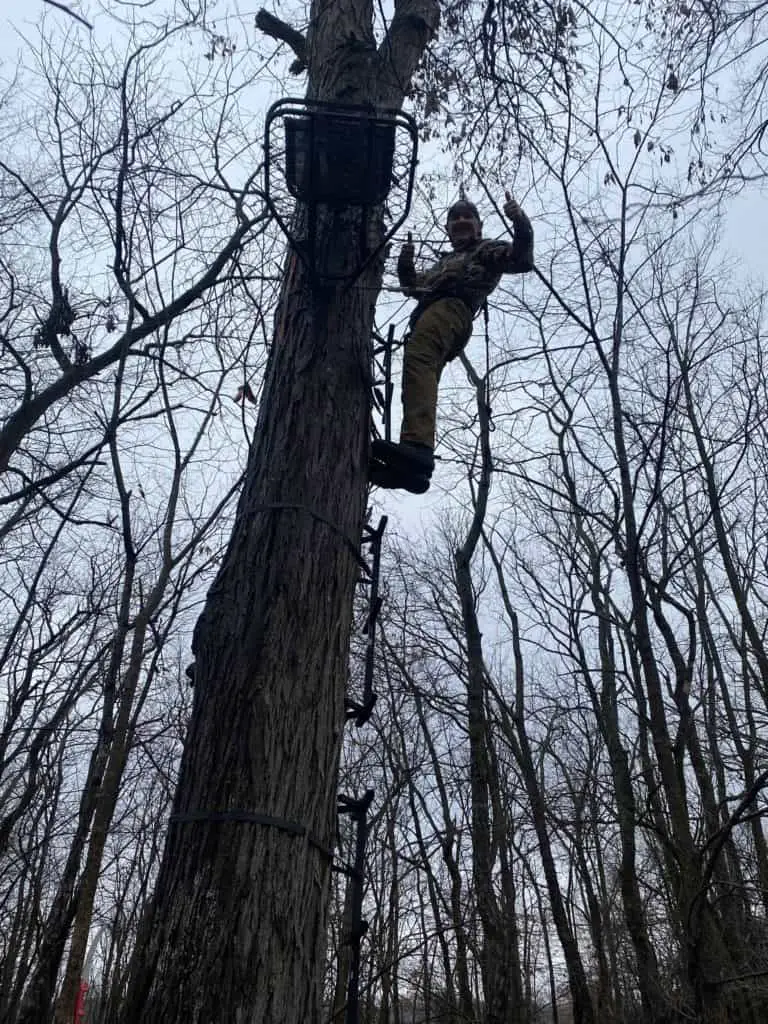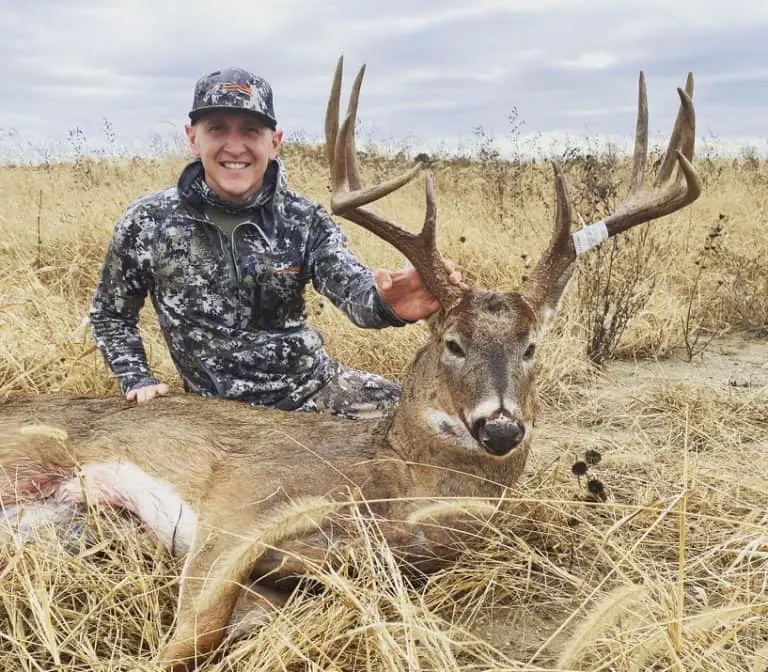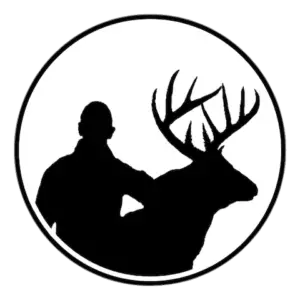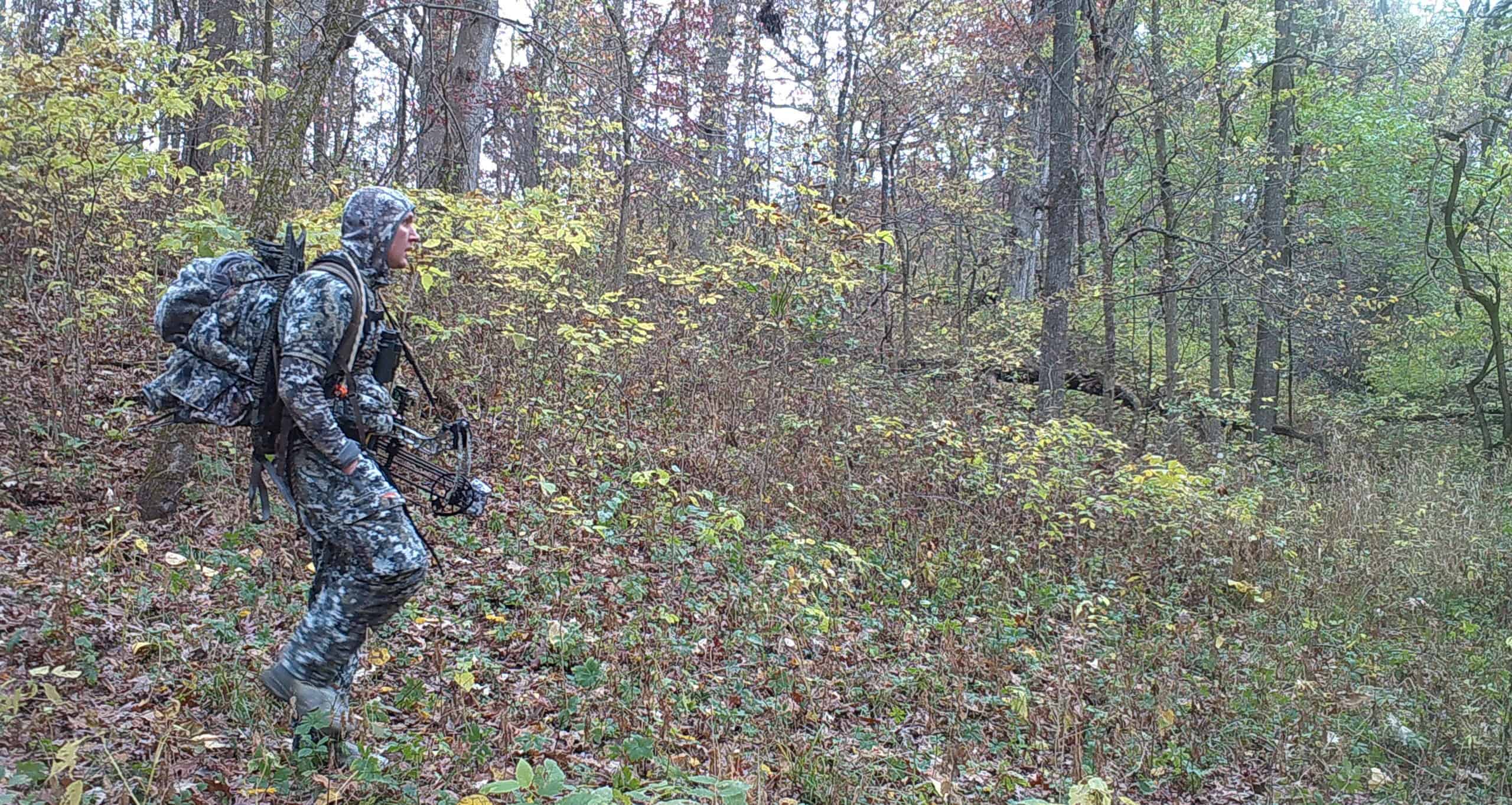There are millions of hunters in the United States and across the world. Regardless of the type of hunting you are doing, there is a number one rule that applies to them all. You might have already guessed what that number one rule is, but are you aware of the other rules that come in as close seconds? We will dive into all of them in this article.
The number one rule of hunting is safety first. If you get hurt then it’s possible that every other aspect of your life will be impacted by an injury. Hunters die and get injured in the field every year for various reasons so it’s important to follow the safety tips in this article to avoid harm and injury. Additionally, I will list out a few other rules that come in as close seconds to the number one rule of hunting, safety first.
Here are 21 tips to help you stay safe and get home from your hunt uninjured. Additionally, we will break down those other rules that come in as close seconds, so be sure to scroll all the way down the page for those. Let’s dive in.
Safety First
1. Take a hunters education course
When many hunters get started out in hunting, they go through a hunter’s education course. This is great way to get off on the right foot in regards to staying safe. You can take it one step further by watching videos online on how to do particular things in a safe manner before you go and do them.
2. Get a mentor
Finding someone you trust and is experienced in the type of hunting you want to do will help you avoid mistakes. Make sure your mentor is someone that has a strong moral compass so they don’t lead you in a bad direction. The more experience you can surround yourself with the better off you will be.
3. Look out for others
If you are an experienced hunter, make sure you keep an eye on anyone you haven’t hunted with before. Make sure they are practicing good safety habits and look out for yourself and others. Don’t trust someone just because you have known them for a long time. They might not know what they are doing. If you do notice a hunting partner making a mistake then point it out to them in a positive way and coach them up on how to do it properly.
4. Avoid using alcohol or drugs
Never consume alcohol or drugs when hunting or when handling weapons. Alcohol and drugs impair your decision-making and motor skills. Drugs and alcohol can make you lose your balance and fall from a tree stand. It can also impact the accuracy of your shot which could lead to wounding animals. We want to make the best shot possible for a quick clean kill.
5. Follow gun safety
- Treat every gun like it’s loaded
- Always point a gun in a safe direction
- Confirm your target before firing and know what is beyond your target
- Keep weapons unloaded if you aren’t using them
- Keep your weapon clean and clear of obstructions
- Never hold a loaded weapon while crossing obstacles like fences
- Store guns and ammo in different places under lock and key (keep kids away)
- Use hearing protection
- Use safety glasses
6. Follow bow safety
- Get help from a bow shop when setting up your bow and tuning it
- Point bow and arrow at your target only
- Know what is between you and the target and beyond your target
- Only nock an arrow when it’s safe to take a shot
- Never fire over a ridge
- Never dry-fire your bow (shooting without an arrow nocked)
- Handle arrows and broadheads carefully
- Repair any defects with your equipment before shooting again
- Keep your bow and arrows protected in a case
7. Follow tree stand safety
- When assembling a tree stand make sure to follow the manufacturer’s instructions
- Climb tree’s while using three points of contact
- Use a tow rope to pull your equipment up to you
- Use a lineman’s rope when hanging a tree stand
- Always wear your harness
- Use a lifeline so tied off from the moment you leave the ground
- Don’t hang tree stands in dead trees or very small diameter trees
- Inspect stands and ladder steps before using them
- Be suspicious of climbing into someone else’s stand
- Be cautious of climbing in wood stands (look for rotted wood)
- Replace ratchet straps

8. Practice
Practice good habits from the start and try to practice often. The more you do something, the better you will become. You are less likely to have safety incidents if you are comfortable with your equipment and practice the same routine over and over.
9. Tell others where you will be
If something serious were to happen and you need help, then you want to make sure that the help can get to you as quick as possible. Tell someone where you are going and what time you plan on returning. There are apps available for your smart phone that let you share your location with others.
10. Carry a phone
11. Carry a map or download one for your phone
12. Carry a compass
13. Carry a GPS
14. Carry a two-way radio
15. Carry a flash light
16. Carry bear spray
17. Carry a whistle
18. Carry an external battery charger and cables for your devices
19. Dress for the conditions and plan for the worse
20. Wear hunter orange
Depending on the rules and regulations for your area, you might have to wear hunter orange. However, even if it’s not a requirement you still might want to wear it if other hunters could be close by. Some guys aren’t ethical hunters and don’t follow safety rules like they should. If other hunters can see you then it will help keep them honest, keep you safe, and hopefully keep them a safe distance away from where you are hunting.
21. Get familiar with the land you hunt
You are less likely to get lost if you are familiar with the lands where you are hunting. You will also be able to get around in the dark better or give someone directions on how to find you. You should know where the property boundaries are so you don’t trespass. Many people don’t act kindly to trespassing, so avoid putting yourself in this potentially dangerous situation.
Other rules that are a close second to safety
It’s hard to argue against the fact that safety is the number one rule of hunting. However, if safety wasn’t the number one rule, then one of these four rules might have taken the number one spot.
1. Follow the Law
If you don’t follow the law then odds are you will eventually get your hunting rights taken away from you, get a fine, or even worse. Make sure you read the hunting rules and regulations for the area you are hunting and follow them. Breaking hunting laws can result in serious jail time and costly fines. You could also lose your right to hunt or get all of your weapons, meat and trophies confiscated from you. There is a long list of bad things that can happen to you if you get caught not following hunting laws. Make sure you know the law and follow it.
2. Respect others and your game
Respect other hunters. There are groups of people out in the world trying to take your hunting rights away. Hunters need to stick together. Hunters don’t all have the same goals which can sometimes be frustrating, but do your best to get along and come to agreements that both hunters can live with and follow.
Respect landowners and their neighbors’ property. When you respect other people and their property, they will be more likely to return that respect to you. If you want to keep your right to hunt, or recover animals you shot, then you should stay on these people’s good side.
Respect your game. If you are a trophy hunter then don’t just let the meat from that animal go to waste. Donate that meat or get it processed and gift it away to friends and family. It’s unethical to kill an animal and walk away with just the head or antlers. If you can’t afford to pay for processing, or you don’t know how to process it yourself, then you shouldn’t be hunting that animal.
When you take pictures or video of killed animals make sure you clean them up beforehand. Try not to have blood in the picture or let their tongue hang from their mouth. Cleaning up the animal shows others your respect for the game makes hero images look much better.

3. Play the wind
When hunting big game such as deer, bear, and elk you will have more hunting success if you can keep those animals from getting downwind from your position. These animals, and many others, have an incredibly good sense of smell. They can be alerted by your scent before you even get a chance to make a move on them to take a shot. Do your best to stay downwind from the game you are hunting and your odds of success will go way up.
4. Have fun
Lastly, and perhaps most important, you need to have fun. Most of us reading this article are not hunting for survival purposes. We probably are looking to get some kind of enjoyment from the hunt itself. As long as you follow the tips that were discussed in this article you are on the right track to having fun.

